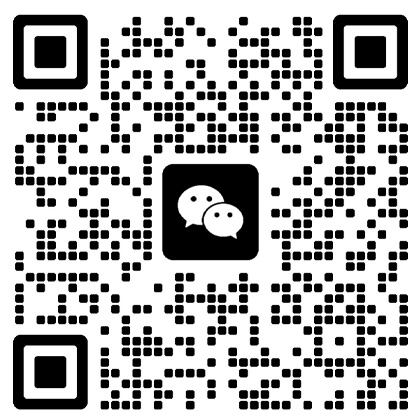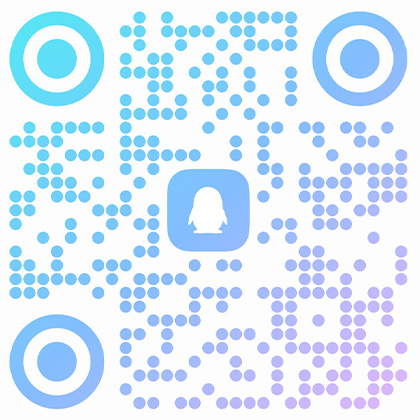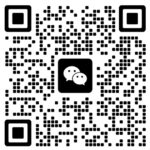
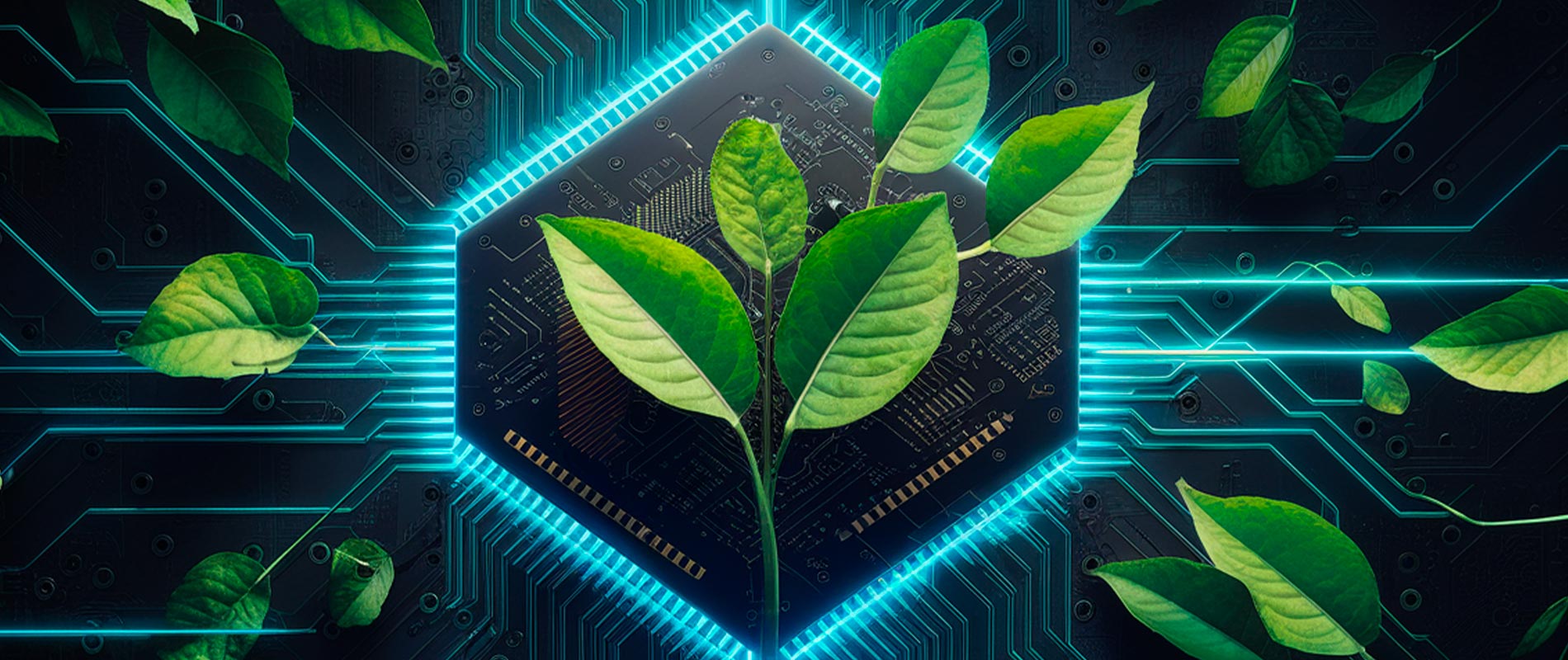
1986 was an eventful year.
We want to make a difference

Portugal and Spain, which had previously been ruled by dictators, joined the European Union. Mikhail Gorbachev campaigned for the disarmament of all nuclear weapons by the turn of the millennium and at the same time called for more freedom of speech and opinion in his own country – known under the terms “glasnost” and “perestroika”. The United States of America’s Voyager 2 space probe flew past Uranus and took photos of it. The main module of the Soviet space station Mir is launched into Earth orbit. DENIC (German Network Information Center) registered the domain “.de” in the IANA database, which is so important for the Internet age. However, the year was also marked by sad events: The US space shuttle Challenger broke up shortly after take-off. All crew members lost their lives. A nuclear power plant in Ukraine suffered an accident, triggering a catastrophe that affected the whole of Europe.
In a tranquil and peaceful region in the heart of Europe, in the middle of Bavaria, innovative visionaries began building a company in 1986 with the aim of changing the world. This was done with wise foresight and on the premise that since the beginnings of electrical engineering, which led to the digital revolution, everything worldwide has had to do with circuits, capacitors, transistors, processors, etc. These developments of 1986 are directly or indirectly linked to technological achievements without which machines would not work, communication would not be possible, we would not be able to see into the solar system or, and this is the other side of the coin, we would be able to trigger nuclear disasters.
Innovation meets sustainability
A feel for hidden potential

Looking to the future, however, the company founders also saw opportunities in all the upheavals of the time to use electronic components, the heart of today’s digital world, in such a way that everyone benefits from the interaction with the environment, fair distribution and the conservation of our resources. Over the years, a global network has been built up that identifies existing capacities, connects customers and suppliers, and always takes care to harmonize this with the economic, cultural,l and social needs of the respective partners.
Years later, with offices in the US, Mexico, Europe, and Asia, ComSIT has become a key player in bringing developers, buyers, and customers together in a service-oriented environment, enabling all parties to benefit from our personal “Green Deal”. Looking back to 1986, the company’s founders and visionaries have shown foresight: Computer chips and sensors have become an integral part of today’s world. Without a sustainable counter-strategy, there is a risk of massive overexploitation of the environment and conflicts. To counteract this, ComSIT has set itself the task of optimizing the value chain, leveraging potential, building networks, conserving resources, and creating a closed economic cycle with the aim of keeping the planet in balance and leaving it intact for future generations.
Without causing much of a stir, we have proven over many years in the heart of Europe, in beautiful Bavaria, that it works. Now is the time to go one step further and utilize the great potential that is available to us and you thanks to our many years of experience.
The visionary minds
Meet Müzeyyen Carrasco & Christian Meier

So who are the creative minds behind this successful and innovative concept? Introducing Müzeyyen Carrasco and Christian Meier. The ComSIT success story began with them. To date, the managing partners have built up a strong, committed team of internationally active experts at various locations. The goal? Using resources intelligently – preserving the planet!
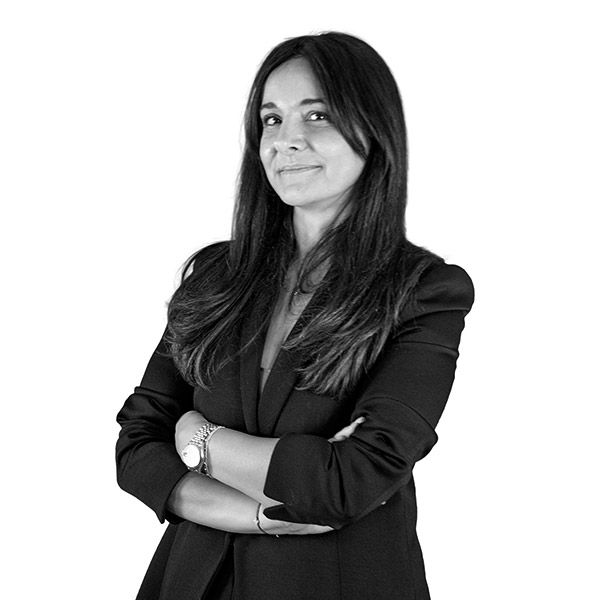
Müzeyyen Carrasco - Interview
Tell me about your background.
As a cosmopolitan, I appreciate the different cultures and mentalities of the people: the hospitality and warmth that I experienced in the Middle East, even from ordinary people, the temperament of the southerners who sometimes turn night into day, the punctuality of the Germans, the formality of the Asians, the attitude to life and enjoyment of the French, etc. – I could list so many more positive things. I firmly believe that diversity enriches humanity and helps to develop creative ideas.
How did you experience your school days?
I have fond memories of my school days in North Rhine-Westphalia, even though my parents weren’t always able to help me because of the simple conditions. I had ambition and I always saw cultural differences as an enrichment, even if it was sometimes a challenge. Others may have found it more difficult because they didn’t know whether they could stay in Germany and where they should feel they belonged. However, this was not an issue for me. I simply wanted to develop further and become the change myself. So I went through secondary school to A-levels, then at some point I studied law, which I interrupted because a whole new world opened up to me: that of electronic components.
How did this come about?
In November 1995, I started working for an American distributor of electronic components as a “girl for everything”. It was pretty boring at first, but I needed a financial basis to be able to finance my studies. Since I was 14 years old, I took care of my financial maintenance in order to relieve my family. In any case, I didn’t see any point in being bored as a receptionist at a company headquarters. And so one day I took heart and knocked on the door of the managing director at the time. I asked him, even though I had hardly any experience in sales and purchasing, but spoke languages better than many of my colleagues at the company at the time, to give me a new job here for which I felt I was better suited.
And what happened then?
My boss looked at me with surprise but also curiosity and asked me if I could find a better job elsewhere. This was followed by an invitation to think about it. At that moment, I realized that I really hadn’t thought about whether I could find a better job elsewhere. It was simply the entrepreneurial drive to want to create something that spoke to me and had such an impact on my later life. Almost a little scared of myself, I made my way home, lost in thought as the rain drenched me, and caught a severe flu that put me out of action for three days.
Fortunately, I’m a stand-up guy. After three days and a few fever pills, I made my way to the company. I knew that a conversation with the boss would follow. But I hadn’t expected this result.
I was greeted with a smile in the boss’s office. And my supervisor humorously said to me: “Müzeyyen, your job no longer exists.” I thought that was it and I could pack my bags. But the experienced manager looked at me with a broad grin and added: “But there’s a vacancy in Purchasing”.
And that's how your career in the electrical industry began?
There's an anecdote about you and your former supervisor at the trade fair...
Yes, that was pretty funny and prophetic at the same time. We had a stand at Electronica and an elderly couple approached us. None of the managers in charge were in their seats, so I took over the conversation. The elderly couple seemed so enthusiastic about me that as soon as our Vice arrived, they greeted him with the following words:
“You have a great employee. She will be a manager one day.”
My vice president’s answer was rather dry. He replied with the words:
“I don’t think so.”
That stayed in my mind and reminded me of my teacher who once said:
“I’m only going to be a mother, a housewife or a mistress anyway.”
This essentially shows the image of women at that time, which men in the electrical industry still had at that time and to some extent still have today. In this context, it is particularly important to me to encourage young girls and women to never give up. If I can do it as a small, petite woman with a migrant background, then any other woman can do it too. It’s a question of attitude. Women are on an equal footing with men in this sector. When it comes to negotiations, we complement each other very well. It’s time for some managers to finally realize this.
What was Asia like for you?
When did you meet Christian Meier for the first time?
So that was the first contact that got everything rolling?
That was the first contact that got everything rolling.
My employer built further branches in Europe and other regions of the world. The collaboration with Christian became ever closer. Over time, further business partners were added. In 2008, I took a new path. I became a partner in the company ComSIT, in which Christian was also involved. Our aim was to better bundle and optimize purchasing, sales and logistics. Today, Christan and I are CEO tandem in the company and have big plans for the future.
Please tell us something about your personal corporate philosophy.
Taking responsibility for my employees is important to me. Standing by your word is essential. The families of our employees who are planning a future, want to lead a happy life and need security depend on both. As entrepreneurs, we all owe it to them. After all, they are the foundation of our success. Many companies often forget this. At the same time, it is important to me to encourage women to go more into electrical engineering. It’s not just the shortage of skilled workers that makes this necessary. It is also about proving that women are just as good engineers, technicians and mechanics as men. If we walk a common path, we will also be more successful. That’s what my own experience has taught me. Diversity in all professional situations is good and enriching. A benefit for us all.
And your personal wish?
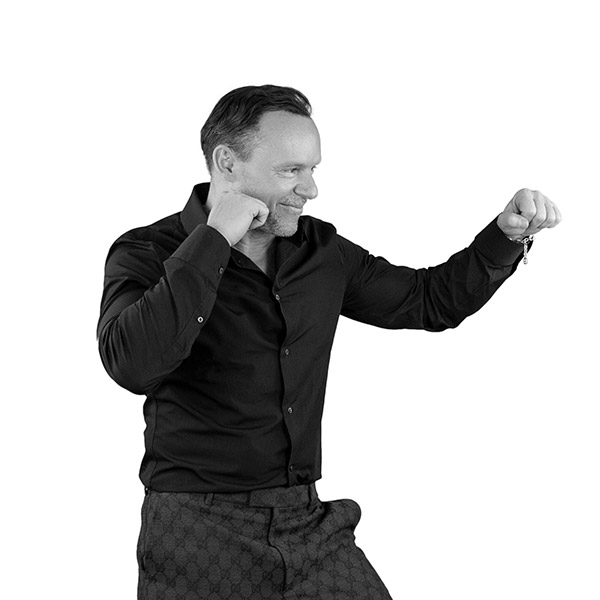
Christian Meier - Interview
Tell me about your background.
I was born in Austria and spent the first years of my life here in Tamsweg. To say that it was an easy life, especially financially, would not be true. Especially as the environment in which I grew up as a child was very difficult and left its mark.
When I was 14 years old, we moved in with my parents in Germany. His mother and father worked in the catering trade. So I helped out to earn some money. I started in the kitchen as a kitchen assistant, was allowed to help out in the bakery, and proudly made it to the waitress. So I worked after school did homework and made myself more financially independent. A great side effect was that the part-time jobs made me more stress-resistant and I really enjoyed doing something meaningful.
How did you experience your school days?
Even as a teenager, I went through life with a positive, entrepreneurial attitude. I was correspondingly ambitious at school. During my business baccalaureate at the FOS, I completed a six-month internship that was part of my baccalaureate, which I completed with an excellent numerus clausus.
I had to accept a longer waiting period for my intended studies in the tourism industry, which I made up for with a part-time job at Baer. electronics, which was also made possible by my previous internship. In between, I worked for six months at the World Expo (1992) in Seville. It was a special human and multifaceted experience that had a huge impact on me both interculturally and entrepreneurially. Getting to know lots of people and engaging with them broadens your horizons and changes your view of the world.
After my return in 1993, I continued my professional career at Baer. electronics. The marketing of remaining stocks of electronic components became increasingly important and quickly became the central business principle. An increasing focus on semiconductors was the logical next step. In 1996, together with Mr. Baer (Baer Elektronik), AKI – Elektronik (AKI – All Kind of ICs) was founded. On the initiative of my business partner, we parted company in 1997. The continuation of the newly founded company took place in large steps.
And that's how you came into contact with electrical engineering?
What were your tasks?
I mainly took care of components that were no longer produced or were difficult to obtain. Back then, in the 80s and 90s, people still repaired a lot of electronics instead of simply using them up and throwing them away.
The price for good electronics was also different. A new television could cost a month’s salary. In any case, I found the search for components very challenging, exciting and filled me with joy when I discovered another source. In the process, I developed an analytical method that was later incorporated into very efficient software in the course of my entrepreneurial activities, with which data can be recorded extremely quickly and classified according to the respective key parameters.
We are not talking about a few data sheets for a dozen capacitors. I’m talking about thousands of different components from different product classes. I had to interpret values and data from catalogs with thousands of pages.
In addition, there was a flood of data sheets that was simply endless. And this at a time when the Internet was still in its infancy and Excel was only a term for top managers, statisticians or nerds. In these moments, a characteristic of my mind crystallized that was and is of immense importance for data analysis.
I have a photographic memory. I can memorize numbers, tables, serial numbers and parameters better than most people around me. Even today, I can still list the components I sold at the very beginning of my career in the electrical industry in my sleep. One thing led to another. The managing director of the Munich-based radio and television company recognized the potential of components that were difficult or quick to procure.
And so the plans for a joint venture flourished. I owe a lot to my mentor and friend at the time, who always encouraged me to break new ground. Unfortunately, we broke up at a time when we both wanted to go new ways.
And that led to your first own company?
My tasks as a trainee included order processing, especially in the early days. So I had customer contact and I really enjoyed advising our customers. Some purchasing tasks were also added. I quickly realized that the semiconductor sector would become increasingly important. 1996 was the year in which many people discovered the Internet and digitalization began its unstoppable triumphal march. So we started to build up a semiconductor range and focus more on it. In this way, I learned in practice what it means when customers suddenly need processors and memory modules in the event of a bottleneck. As a result, we concentrated heavily on the purchase of item goods and acquired a huge amount of expertise in this area, from which the whole of ComSIT benefits today. My skills in the areas of logistics, purchasing and sales led to a cooperation with the company where I started as a trainee after completing my business studies. This collaboration gave rise to the company “All kinds of IC – AKI”. A short time later, I parted ways with my business partner at the time.
Now I was on my own. That was, if you like, the starting signal for my own start-up. I could hardly wait to get started. Soon I had three employees and a store in Munich. We grew quickly and I was suddenly faced with completely different challenges. Employee management, public image, marketing and, above all, logistics were a major challenge. The conditions were sometimes very tough. Sometimes I spent nights optimizing processes in order to align the company even faster with reputable suppliers and build relationships with them. The competition, which was much bigger, was always lying in wait. Accordingly, it was a tough battle with setbacks at the beginning, which I had to fight every day. I saw myself as an underdog with start-up flair and worked my way up in the industry. Together with our team, we have achieved our goals. Our success even led to us being offered a higher eight-figure million euro sum for the company at the turn of the millennium. I decided against it at the time for moral reasons, also for my employees.
The year 2000 was a wild time.
Back then, everyone wanted to go public, make a quick buck and so on. I was skeptical by nature. The developments at the time and the bursting of the dotcom bubble showed me that I was right. I was also right about the Internet, which we were already using intensively around the turn of the millennium and before to improve processes structurally and step by step. Sales, purchasing, marketing and logistics have improved enormously as a result. The Internet was of fundamental importance for international acquisition in particular. Today, a gigantic network combined with highly developed and innovative software forms the heart of our company and gives us insight into the worldwide availability of all classes of electronic components. The same platform is also our sales portal, which connects us with millions and millions of consumers. In 2001, after the big stock market crash, we joined forces with my business partner Peter Heimbach from HBC to form ComSIT. While other companies were recovering from the stock market crash, we continued to grow steadily and opened branches in Asia and the USA. Our aim was to be available to our customers via the Internet 24 hours a day, seven days a week, 360 days a year. We have succeeded.
And when did you meet Müzeyyen Carrasco-Demir, your current business partner?
I had known Müzeyyen since 1996, when we met at Elektronika in Munich. We had a humorous discussion about Infineon components that I thought only I had in stock. She claimed the opposite and was convinced that she too could obtain the component with the serial number TDA4718A (the serial number is etched in my memory). And at an even better price. And she was right.
I was very impressed by this energetic woman. Not only had she sourced the parts, but to my surprise they were cheaper than I could have done at the time. After that, apart from sporadic contact, we initially went our separate ways. Until 2008, when the top buyer and excellent saleswoman joined ComSIT as a partner.
In 2022, Peter Heimbach, whom I greatly appreciate and to whom we owe a great deal, left the company for reasons of age. Since then, Müzeyyen and I have formed a CEO tandem. And we are very happy with that. Our aim is to lead the company into the future with lots of new ideas.
Speaking of the future. How do you envision this for the company?
Two factors play a role here.
1 ComSIT is to become the largest independent distributor of its kind. And we are well on the way to achieving this.
2. the company is committed to its employees. They all have a family, a safe home. Their future must be secured. But also the future of young people who want to come to us and deserve a chance.
I have learned in my life to always think positively. Even if you have to put up with setbacks. It’s like in the boxing ring. You fall down, but you can get up again. And we should set this example to all people who want it. No matter what handicap you have, whether your eye color is brown, blue or green, or what culture you come from. Everyone deserves a chance. You just have to use them.
What do you personally want for the future of your children?
That they grow up protected, what I wish for all children in this world, that they have parents who are there for them, that they have a happier childhood than I had. And that, as they get older, they also think about others who are not doing so well.
They should develop a sense for our environment and take sustainability seriously. We only have one planet. This must be protected and left intact for future generations. We, the current generation, are responsible for this.
We must also deal responsibly with the new technologies that are coming at us exponentially and at ever faster intervals. One example of this is artificial intelligence, which is making its way and will change the world. However, this also entails risks that we need to keep an eye on.
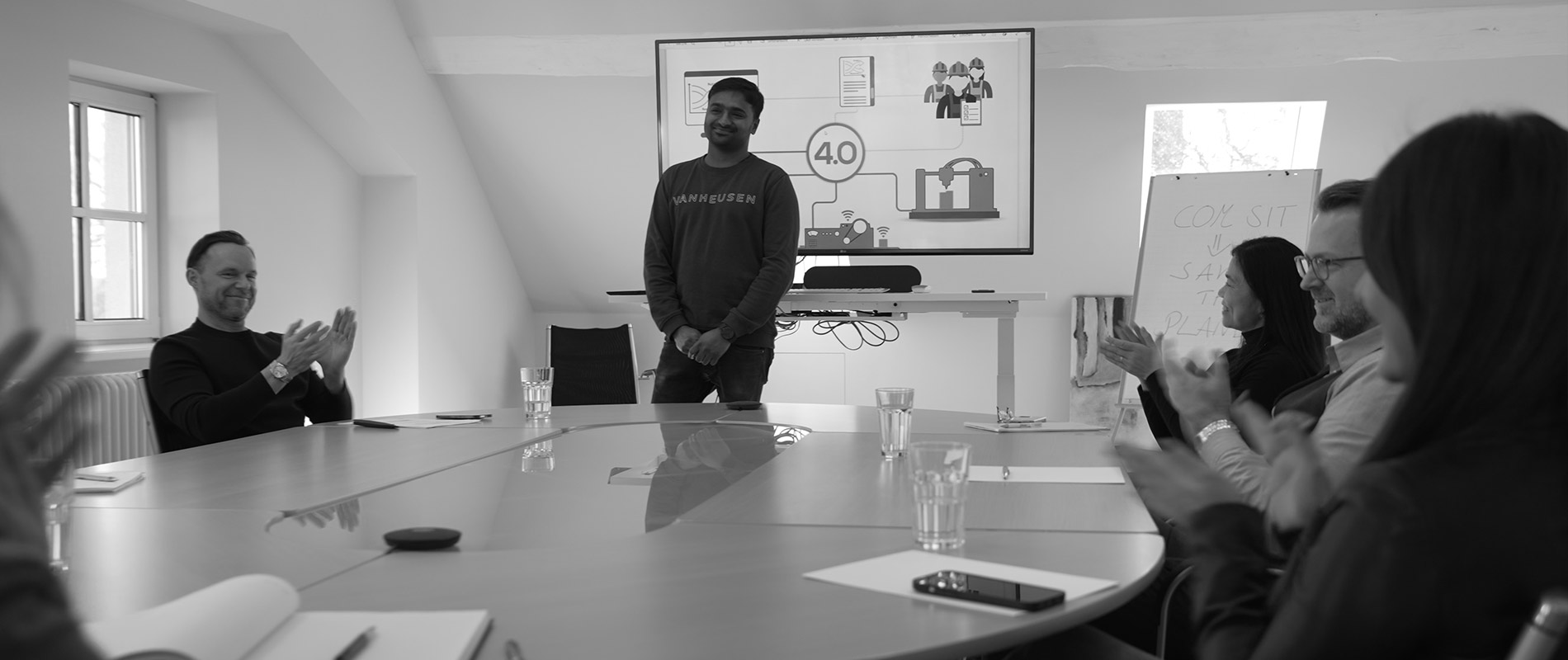
Our logo
Balancing act between technology & emotion

When looking for a new logo, we tried to create something that would be unusual for many, especially for die-hard engineers and tech nerds. The fact that electronic components are abstract for many people deters young women and men from dedicating themselves to precisely these technologies that are so crucial for the digital world. Without chips, transistors, LEDs or capacitors, neither our journeys into the solar system nor every banal Facebook post would be possible.
So we came to the conclusion – with the significant involvement of the female management – that the logo had to somehow manage the balancing act between sober technology and emotional perception. Because as important as potato chips and the like are for today’s world, we find it sad that young people in particular do not feel addressed by them.
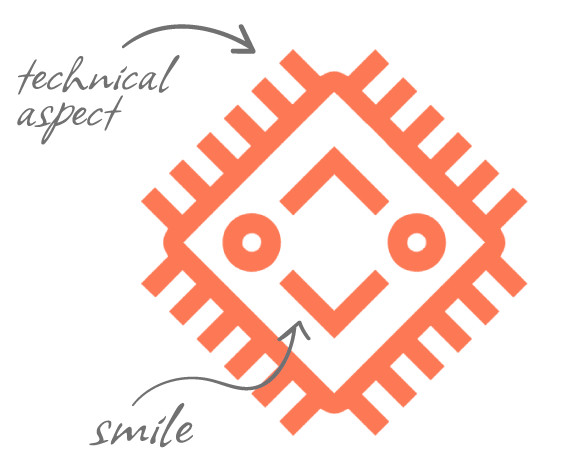
It must be clear to all of us that wind turbines, solar systems, future-oriented environmental technologies, autonomous driving and stargazing would not be possible without electronic components. At the heart of this fascinating world are the so-called “semiconductors”, chips that are found in all the electronic devices we use today and which have changed our lives decisively. This is how we brought our “logo” to life as a friendly, smiling mascot, a fusion of two worlds.
COMSI, as the name suggests, is intended to motivate all those who previously had no interest in electronics to learn more about electronic components. We can only better protect and preserve our planet if we continue to produce engineers who screw, tinker and develop with a smile on their faces to make our home, a huge global village, a better place to live.
Our COMSI motivates us to do just that every day with a smile on his face.
Thank you COMSI
GET IN TOUCH WITH US
Write to us

Do you have any questions? Send us a message! Our specialists will contact you within a short time to discuss your request.
ComSIT Asia-Pacific offices
-
China Mainland Office
ComSIT Electronics Taicang Co. Ltd
康狮德电子(太仓)有限公司 -
Rm 23A-23B, 17/F, Dongting Building,
No.319 Middle Zhenghe Road
215400, Taicang, Jiangsu
China
-
Hong Kong Office
ComSIT APAC Limited
-
Room 2103, Futura Plaza
111 How Ming Street
Kwun Tong, Hong Kong
China



